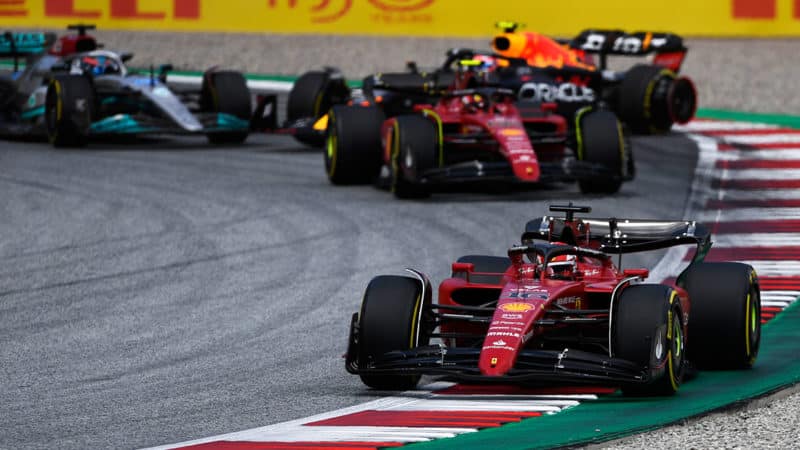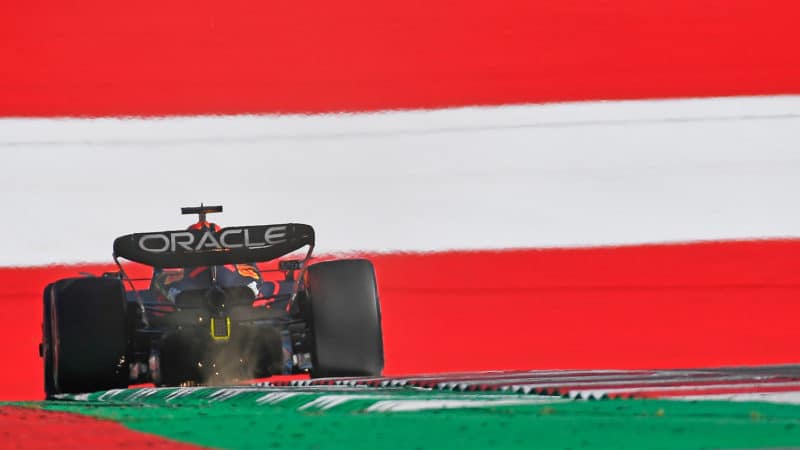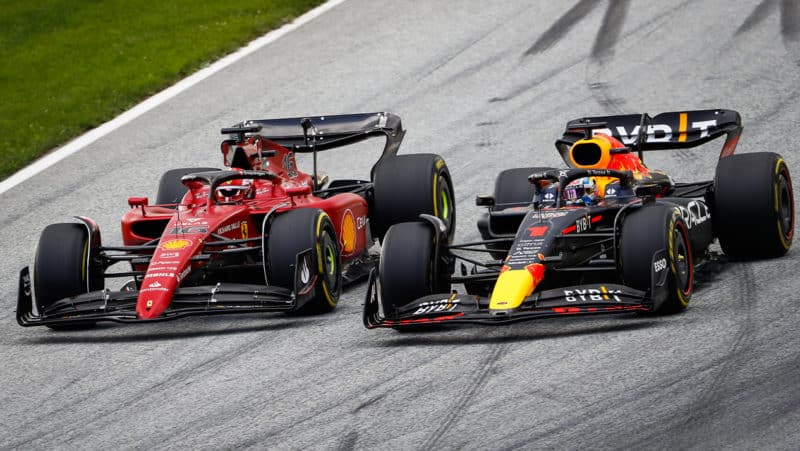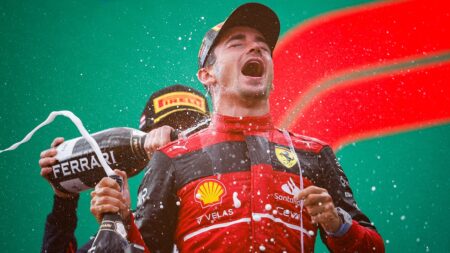Verstappen’s high-deg pattern was repeated on the hard tyres in stint 2 and when the Ferraris rejoined after their stop Leclerc was able to catch and pass the Red Bull for the second time. The fact that Leclerc did that rather than just sit behind and wait for Verstappen to pit, confirmed that Ferrari had opted to switch to a Red Bull-matching two-stop – but with much later stops and therefore always with the grip advantage to overtake on track whenever they lost position by pitting. So running 12 laps out of sync, Leclerc was able to pass Verstappen for a third time after his second stop. Sainz was about to do follow him through when his engine let got in the biggest way imaginable on the run down to Turn 4, the car pulling off with the rear end already in flames.
The VSC came out for a couple of laps while the situation was sorted, and both Leclerc and Verstappen – half a minute clear of third-placed Lewis Hamilton – took the opportunity to replace their hards for fresh mediums. It was upon the resumption of racing that Leclerc’s throttle problem began. Verstappen chased him down and set fastest lap along the way but Leclerc’s earlier margin at the VSC was enough of a cushion to see him through and he crossed the line 1.6sec ahead.
Mercedes’ third and fourth with Hamilton and George Russell confirmed the W13 as the third-quickest car but not as quick as it had looked on Friday. It was being driven beyond the edge in doing those times and both crashed out in Q3, Hamilton before having recorded a representative time. Running down among slower cars (he diced long with Mick Schumacher’s Haas in both races) but running a long first stint on Sunday, it was only as they pitted out of his way that he got the clear air to emerge ahead of the midfield.

Contact on lap 1 was bad news for Russell, as well as Perez
Getty Images
Russell’s race was compromised by front wing damage incurred on the first lap when he snagged Sergio Perez who was trying to go around his outside at Turn 4, spinning the Red Bull into the gravel trap. Not only did Russell receive a 5sec penalty for that, but it forced an earlier than ideal stop in order to change the nose. The stop, penalty included, cost him 20sec.
Esteban Ocon’s Alpine was best of the midfield in fifth but pushed hard for the accolade by the Haas of Schumacher, who was strong all weekend and finished two places ahead of team mate Kevin Magnussen, with Lando Norris’s McLaren between them.




